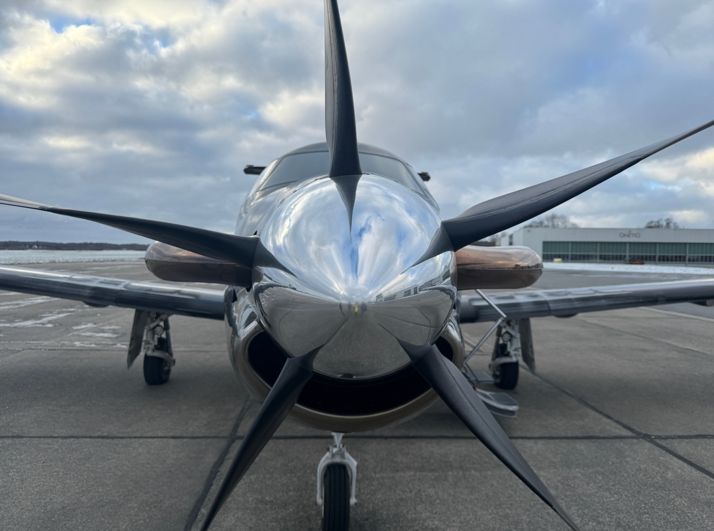MFA stands for Multi-Factor Authentication. It requires users to provide two or more verification factors to access a system, such as a password and a code sent to a mobile device. MFA is crucial for aviation cybersecurity.
The European Union Aviation Safety Agency (EASA) is the regulatory authority responsible for civil aviation safety in Europe. EASA develops regulations, monitors compliance, and issues certifications, including standards for cybersecurity and Part-IS.
Ransomware is malware that encrypts files or systems and demands a ransom for access. In aviation, ransomware can disrupt operations and compromise safety-critical data.
A supply chain attack targets vulnerabilities in third-party vendors or partners to access an organization’s systems. Aviation operators must secure their suppliers to maintain safety and compliance.
A cyber attack is any attempt to gain unauthorized access, steal data, or disrupt digital systems. In aviation, these can compromise ISMS, SMS, and operational safety.
Aviation cybersecurity is the practice of protecting aviation systems, data, and communications from cyber threats. It ensures compliance with EASA Part-IS and secures safety management systems (SMS).
Part-IS refers to the EASA (European Union Aviation Safety Agency) regulation for Information Systems and Safety Management in aviation organizations. It is part of EASA’s compliance framework, ensuring aviation companies have proper Information Security Management Systems (ISMS) and Safety Management Systems (SMS) in place to protect operations, data, and safety-critical processes.
Read the complete guide on Part-IS for aviation organizations
EASA stands for the European Union Aviation Safety Agency. It is the regulatory authority responsible for civil aviation safety across Europe, setting rules, standards, and guidelines for airlines, maintenance organizations, and aviation service providers. EASA oversees compliance with regulations such as Part-IS, ensures Safety Management Systems (SMS) are in place, and provides certification for aviation organizations to maintain safe and secure operations.
A Safety Management System (SMS) is a structured, organisation-wide approach to managing safety risks. In aviation organisations it provides the framework to identify hazards, assess and mitigate risks, monitor performance, and continually improve safety outcomes. An SMS brings together policies, procedures, roles & responsibilities, reporting systems, risk management and assurance activities.
Aviation operations are inherently complex and high-risk. An SMS ensures that safety is integral, not an add-on. By having formal processes to capture hazards, perform risk assessments, trigger corrective and preventive actions, and monitor performance, organisations can reduce incidents, improve operational resilience, and maintain regulatory compliance. ACS emphasises that newer regulations such as EASA Part‑IS require integration of information security frameworks with SMS frameworks – showing that safety and security are now tightly interconnected.
Traditional safety procedures or checklists are often reactive and task-based (e.g., “did we complete the checklist?”). An SMS is proactive and systemic: it embeds hazard identification, risk management, safety assurance and continuous improvement in organisational culture and processes. It moves beyond procedural compliance to performance-based monitoring and improvement. In other words, it provides “control & oversight”, “stability & security” and constant attention to emerging threats.
An Information Security Management System (ISMS) is a structured framework that helps aviation organisations protect their information, systems, digital assets, and operational data from security threats. It ensures confidentiality, integrity, and availability of critical information through policies, risk management, processes, monitoring, and continuous improvement.
Aviation is highly dependent on digital systems – flight operations, maintenance, navigation, crew management, dispatch, and communication platforms. A cyberattack or data breach can disrupt flight safety, ground operations, or regulatory compliance.
EASA Part-IS now mandates that operators, airlines, CAMOs, ground handlers, and ANSPs have a formal ISMS in place to manage information-security risks in an integrated, systematic way.
Yes, for many organisations.
Under EASA Part-IS, the following entities must implement an ISMS aligned to aviation requirements:
- Air operators (AOC holders)
- CAMOs
- Ground handling service providers
- Aerodromes
- ANSPs
- Continuing airworthiness entities
Even outside EASA states, many regulators follow ICAO guidance to strengthen cyber resilience.
Aero Compliance Solutions specialises in helping aviation organisations meet EASA Part-IS requirements.
Their services typically include:
- Gap analysis
- Information-security risk assessments
- Policy and procedure development
- Integration of ISMS with existing SMS
- Supplier chain and interface control mapping
- Incident-response planning
- Compliance monitoring
Their structured aviation-specific approach ensures organisations achieve compliance and real-world resilience.

